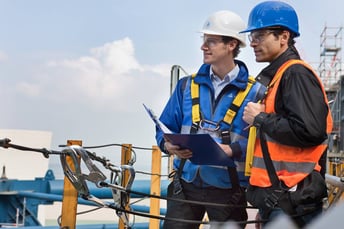The Construction Products Regulation (CPR) lays down harmonised rules for the marketing of construction products in the EU. The Regulation provides a common technical language to assess the performance of construction products.

It ensures that reliable information is available to professionals, public authorities, and consumers, so they can compare the performance of products from different manufacturers in different countries. We bring you an inside interview with a TÜV technical expert to find out more.
Hi Berk, I know that you are an expert on CPR cable regulations, so can you tell us what is CPR?
CPR aka Construction Products Regulation defines safety requirements of construction products, here in Turkey we are specialized on especially on cables certification with EN 50575 standard which defines fire safety classes regarding CPR.
Why is CPR important?
During a fire; smoke, toxic gases and total heat release amount are the most lethal elements… In this aspect the toxic gases released from burning cables are very important.
CPR and EN 50575 standards’ main aim is to help grouping these cables into danger classes. Also this standard integrated fire test regulations in one main document. And test methods became unified.
Who should be certified regarding CPR?
Every cable manufacturer in construction sector should have this certificate. CPR is also a pre requirement for CE certification. It is not optional for manufacturers in Europe or whom would like to export to Europe it is mandatory. The transition period is ending on 1’st of July and the inspections will start accordingly.
What are the advantages?
For the companies who are concerned about fire safety and take this subject seriously will have the chance to prove how good their products are. Also it will provide trust among the end users.
Do you have any suggestions to those who are going to be certified?
They should think thoroughly on which class they will certificate their product depending on their target market / customer requirements. For example some products cannot be certified on upper classes such as PVC based cables on the other hand, if the product has Halogen Free characteristic then it should be one of D, C, B2 or B1 classes. Deciding this, is very important because if you choose an upper class that’s needn’t for your product it will increase the costs per unit and the product will not be demanded. As TÜV Rheinland Turkey, we are ready to help you especially in CPR cable which is our field of expertise.


